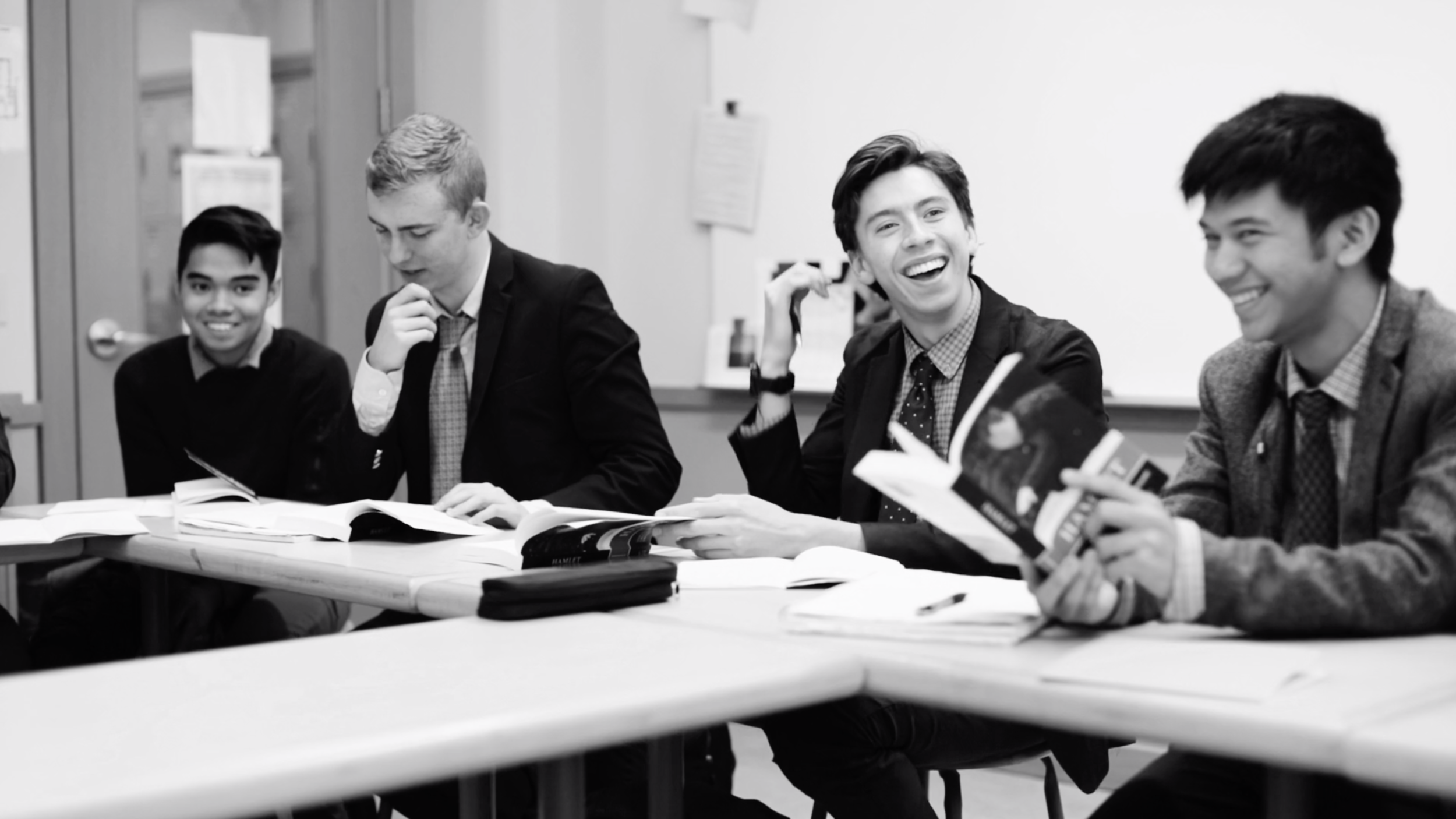
The Eight Dimensions of Boys’ Learning
Boys come to Browning to be known, challenged, and inspired. When a boy’s capacities and aspirations are known and understood by his teachers, that boy can be guided, year after year, to take increasing ownership of his learning. He will develop the disposition not only to respond to others’ questions, but also the ability to craft questions of his own, questions that will drive his class’ process of inquiry. Through this activity, the boys are likewise challenged to ask similar searching questions of themselves. It is through this questioning that they come to understand their identities as intellectual and moral agents, and recognize the opportunities they have to develop and refine their senses of self and character. In reflecting upon the bigger, essential questions that arise from their self-examination and academic work, Browning boys are inspired to seek a deeper level of understanding and to build a sense of purpose that will engage their passions and skills in the service of the world beyond themselves.
Relationships
“In boys’ accounts of being emotionally and intellectually engaged by their teachers, they convey a sense of being transported, exploring new territory, and feeling newly effective, interested, and powerful.” - Michael Reichert, founding director, the Center for the Study of Boys' and Girls' Lives at the University of Pennsylvania
At Browning This Means
Boys are relational learners. When the relationship between a boy and a teacher is strong—when the boy feels known, appreciated, and trusted—the boy is not only more engaged in his studies, but also more inspired to pursue future learning. These claims are substantiated not only through scholarly research, but also by what our boys report about their deep and lasting relationships with teachers and peers.
Agency
“When you teach a child something, you take away forever his chance of discovering it for himself.” - Jean Piaget, developmental psychologist
At Browning this means
We intentionally cultivate learning experiences that allow boys to construct knowledge and meaning. Rather than transmitting knowledge to passive consumers, we craft lessons and activities that put essential questions, student voices, and collaboration at the center, and invite boys to be active contributors to the discipline.
Inquiry
“Live the questions now. Perhaps you will then gradually, without noticing it, live along some distant day into the answer.” - Rainer Maria Rilke, poet
At Browning This Means
Inquiry is the heart of learning, and we teach boys at Browning to pursue big problems, craft meaningful questions, discover ideas, and actively perform understanding in a public manner.
Identity
“An identity would seem to be arrived at by the way in which the person faces and uses his experience.” - James Baldwin, writer
At Browning this means
Education is built on an understanding of the self. We ask the boys to develop their individual narratives and an understanding of who they are and what constitutes a good life for them. As the boys begin to know themselves, they enhance their capacity both to understand and appreciate others and themselves and to take action to improve our world.
Character
“The main goal of education should be to produce competent, caring, loving, and lovable people.” - Nel Noddings, educational theorist
At Browning This Means
Our capacity to live well with others largely determines who we are in the world; how we treat others shapes how we are seen and understood. We aspire to be the best versions of ourselves at all times through the expression of honesty, compassion, and respect for the dignity of others. Our community of character also commits to learning from mistakes and practicing forgiveness when our best efforts fall short.
Reflection
“We do not learn from experience... We learn from reflecting on experience” - John Dewey, philosopher of education
At Browning this means
Reflection involves meditation not only on recent learning, but also the manner in which that learning was acquired. This exercise allows boys to find greater meaning in their learning experiences; indeed, when our boys reflect, they both produce greater connection to new knowledge and find a deeper understanding of their own learning process.
Understanding
“To develop understanding of a subject area, one has to engage in authentic intellectual activity. That means solving problems, making decisions, and developing new understanding using the methods and tools of the discipline.” - Ron Ritchhart, Director of Cultures of Thinking Project, Harvard University
At Browning This Means
Understanding is the end result of the process of inquiry. The ultimate goal of student-directed inquiry is not mere content knowledge, but mastery of how to use, appreciate, and build upon that knowledge. Understanding sparks further curiosity and reignites the process of inquiry, leading to a lifetime of learning.
Purpose
“If there is one thing I've learned in my years on this planet, it's that the happiest people I've known are those who devoted themselves to something bigger and more profound than merely their own self-interest." - John Glenn, astronaut
At Browning this means
Boys are encouraged to find their passion and to pursue a course of action that will allow them to engage this passion in service of their learning, their communities, and the world at large. Students who have discovered a sense of purpose have “a stable and generalized intention to accomplish something that is at the same time meaningful to the self and consequential for the world beyond the self. … [They have] identified something that matters to them, know why it matters to them, and are currently working on that issue with a long-term plan for future action” (William Damon).









